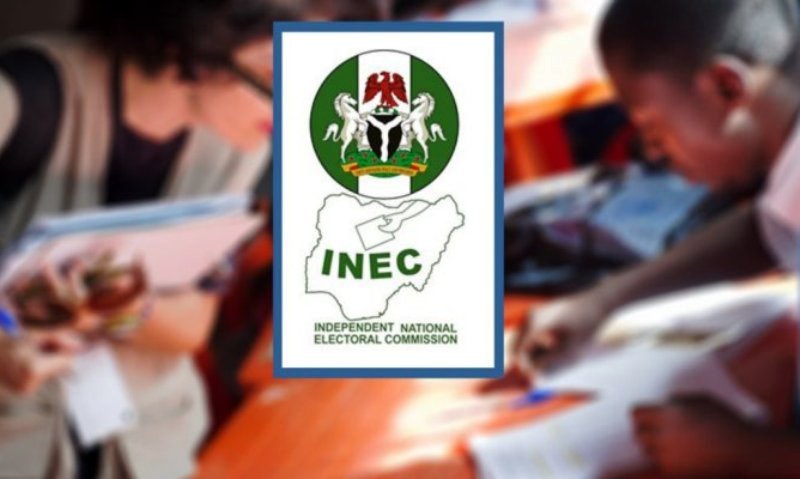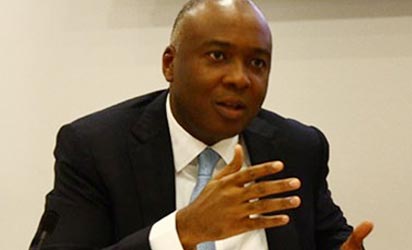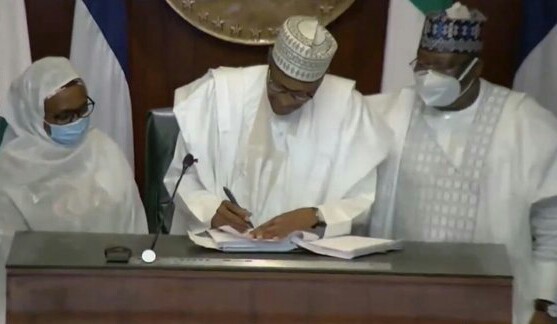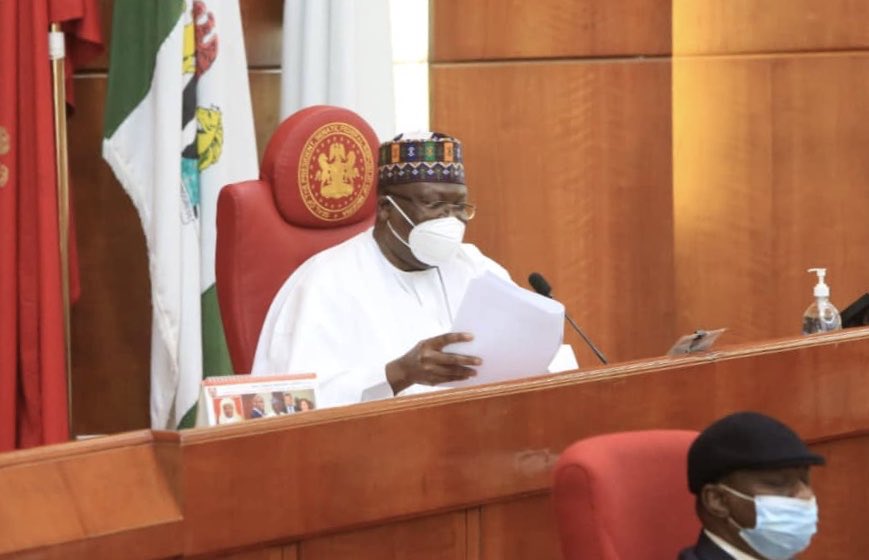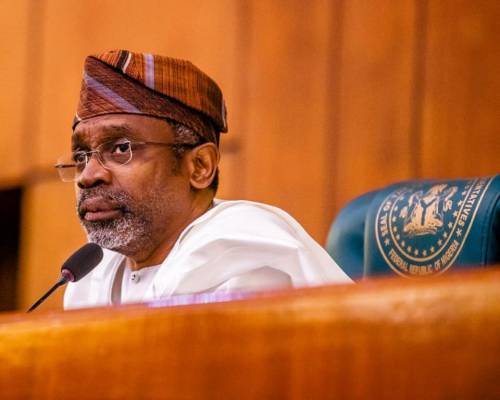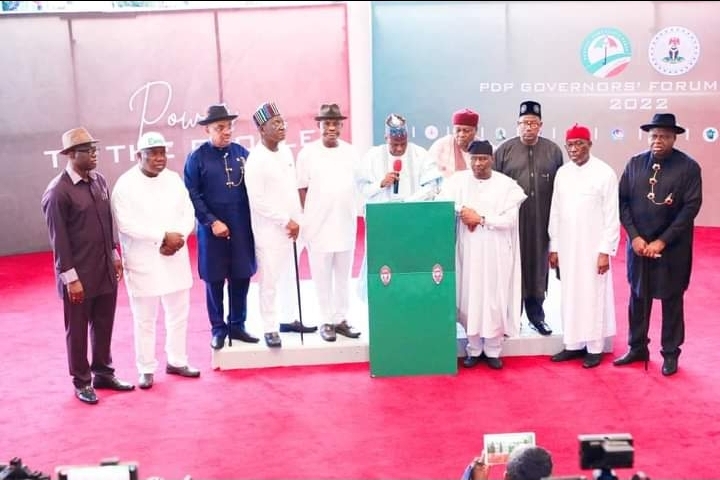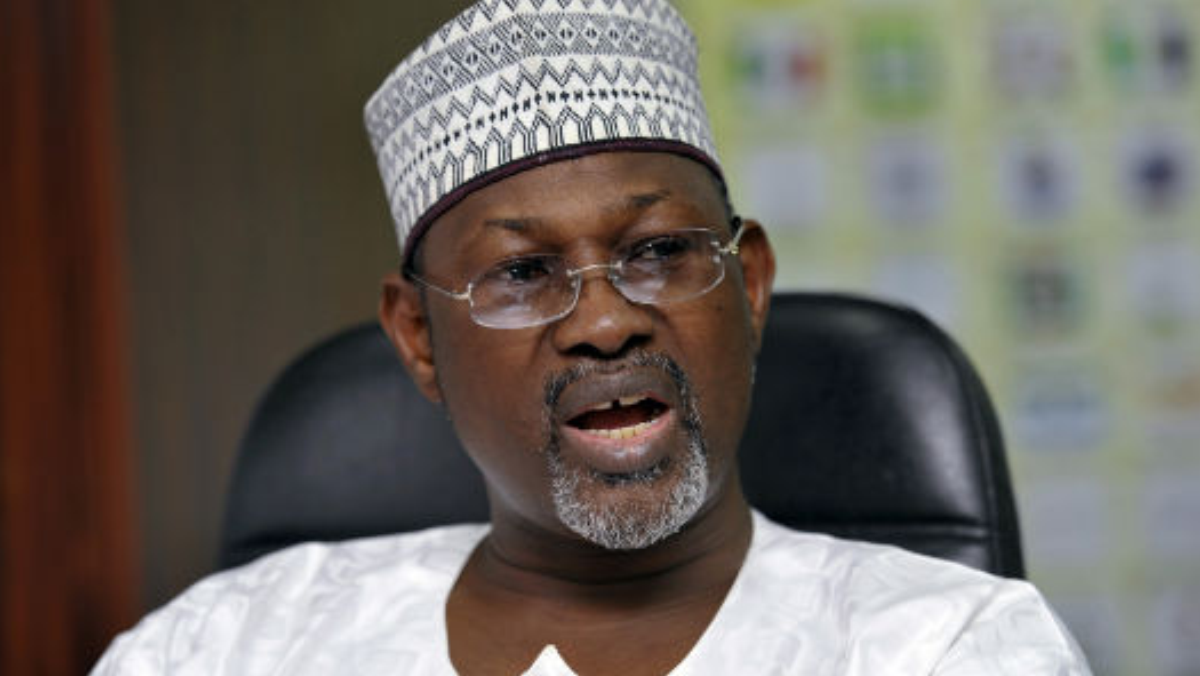The Speaker of the House of Representatives, Femi Gbajabiamila has said the Electoral Amendment Bill will be quickly reintroduced and passed in record time for President Muhammadu Buhari to assent.
TheNewsGuru.com, (TNG) reports Gbajabiamila made this assertion in his welcome address as Reps reconvene after the Yuletide recess.
He said “I remain convinced that the proposal for direct primary elections is valuable for building accountability in our political system.
” But we must not allow the perfect to be the enemy of the good. Therefore, the House will reintroduce the amendment this tomorrow. And we will work quickly to address the mitigating concerns, pass the Bill and send it back to His Excellency President Muhammadu Buhari for assent.
“As to the issues relating to inelegant drafting and other technical errors in the Bill. This is a matter of concern as it appears the version sent to the President differs from what is circulating in the public domain. However, in December of last year, I appointed a technical team to look into the issue.
“I expect to have their report within the next day or two so that we can proceed to the next stage. We have less than thirteen months to the next general election, so time is of the essence. A credible electoral law is what the people want.
” It is what the people deserve, and we must give to them. The Electoral Act (Amendment) Bill includes many other provisions that will serve our democracy well, and we cannot throw away the baby with the bathwater.
Read full address below:
Good morning honourable colleagues.
1. I welcome you all back to the House of Representatives. I thank you all for being here this morning. And I am delighted to see you all looking refreshed and energised, ready to do the people’s business. I thank God almighty for protecting us through our travels and for his many mercies upon our lives.
2. The 9th House of Representatives, despite the limitations imposed on us by a global pandemic, has been an unusually productive parliament. We have taken legislative action to address longstanding challenges of governance and economics in our country. We have passed landmark legislation to fix our oil and gas industry, reform the police and reorganise the corporate administration system in our country.
3. We have considered and passed meaningful legislation that impacts all areas of our national life. Some of these bills are the Police Service Commission Act (Repeal and Re-enactment) Bill, the Electric Power Sector Reform Act (Amendment) Bill, and the Deep Offshore and Inland Basin Production Sharing Contracts Act (Amendment) Bill, amongst others. Just before we adjourned in 2021, we passed a slate of bills to reform the aviation sector and clean up our airports so that these critical national assets can be properly administered to the best expectations of the Nigerian people.
4. We have used the appropriations process and the power of parliament over the public purse to pursue community and constituency development across the country. We have invested in primary, secondary and tertiary education infrastructure. We have provided ICT training centres to facilitate learning and enhance educational outcomes. There is, at the moment, virtually no constituency in the country that hasn’t benefitted from significant investment to improve primary healthcare, rehabilitate classrooms and schools and provide community roads.
5. In reminding us of these things, it is not my intention to encourage complacency or give the impression that our work here is done, far from it. I intend to remind us all of what can be achieved when dedicated public servants work with purpose and precision in the public interest. And I want us to be inspired, in this last year of our present term in office, to work harder, work faster and achieve more than we ever did in the past.
6. Too often, the legislator’s work and the benefits that derive therefrom are not uniquely recognised and acknowledged. Active measures are required to change that, and it is our responsibility to make sure that the people we serve have sufficient information to judge us on the facts. Therefore, it must be a priority for us this year to document our efforts and our success and communicate the same to our constituents across the nation so that we can be judged individually and collectively by our evident accomplishments.
7. Honourable colleagues, we have a lot still left to do in a very brief time. Principal amongst these priorities is the Electoral Act (Amendment) Bill. First, let me express my profound gratitude to all of you for your work to pass this most critical legislation. I want to commend you all for the work done. Unfortunately, that Bill did not receive presidential assent, and it is unlikely that it will in its current form. Now, we have to choose between sticking to our guns regarding the provision to mandate direct primary elections for political parties or reworking that provision to save the rest of the Bill.
8. Now let it be clear to all that our only objective in introducing that provision was to strengthen the foundations of our democracy so that it works for all of our nation’s people. The process by which political parties nominate candidates for election is essential, perhaps even just as important as the general election itself. A primary nomination process that deprives the majority of party members of the opportunity to choose who represents them in the general elections is susceptible to bad outcomes and ought to be fixed.
9. Some argued that political parties do not have proper registers of their members, which was a reason to reject the direct primary option. This is an appalling admission that political parties in the country do not have credible and up to date registers of their members. We are left to question how those parties have thus far managed their affairs, including conducting congresses and primary elections, whether by direct or indirect means. Besides, it can be inferred that the failure to maintain a proper register of members violates the spirit of the constitution, as it makes it impossible for the Independent National Electoral Commission (INEC) to enforce the constitutional requirement for political parties to ensure that their membership reflects the federal character of Nigeria.
10. Nonetheless, it is disappointing that the failure of political parties to adequately document their membership is being used to not give the Nigerian people the power to fully participate in our nation’s politics. If nothing else, including a direct primary mandate in the law, would have forced political parties to properly register their members within the shortest possible time. This would have been the singular most significant reform of our political party system in a generation.
11. I remain convinced that the proposal for direct primary elections is valuable for building accountability in our political system. But we must not allow the perfect to be the enemy of the good. Therefore, the House will reintroduce the amendment this tomorrow. And we will work quickly to address the mitigating concerns, pass the Bill and send it back to His Excellency President Muhammadu Buhari for assent.
12. As to the issues relating to inelegant drafting and other technical errors in the Bill. This is a matter of concern as it appears the version sent to the President differs from what is circulating in the public domain. However, in December of last year, I appointed a technical team to look into the issue. I expect to have their report within the next day or two so that we can proceed to the next stage. We have less than thirteen months to the next general election, so time is of the essence. A credible electoral law is what the people want. It is what the people deserve, and we must give to them. The Electoral Act (Amendment) Bill includes many other provisions that will serve our democracy well, and we cannot throw away the baby with the bathwater.
13. Our current constitutional review effort is as crucial as the Electoral Act (Amendment) Bill. Amending our nation’s constitution to address longstanding areas of disagreement and remove the vestiges of militarism from our democracy is one of the central commitments we made in the 9th House. It is a commitment we must meet or risk the harsh judgment of history. Therefore we will prioritise action to pass the Constitution Amendment Bill in the House of Representatives. Fortunately, we are in the final stages of that effort and will shortly conclude this all-important work. According to the deputy speaker, the first set of amendments will be forwarded to the state assemblies for consideration before the end of February.
14. This is the final year we have to conclude work on our legislative agenda and fulfil the obligations of “Our Contract with Nigerians”. Let us approach this last stretch with the forthright focus and earnestness that comes from knowing that we are in a race to make good history. The entire purpose of the legislative agenda is to direct our legislative resources and efforts in a coordinated effort to ensure the wellbeing of the individual in a life of safety and freedom. That is a high ambition, but it is well worth the effort.
15. Honourable colleagues, once more, I welcome you all back to the House of Representatives. I look forward to a fruitful year of considerable achievement in the joint task of nation-building. And I thank you all most sincerely for your presence here this morning. God bless you all, and God bless the Federal Republic of Nigeria.
